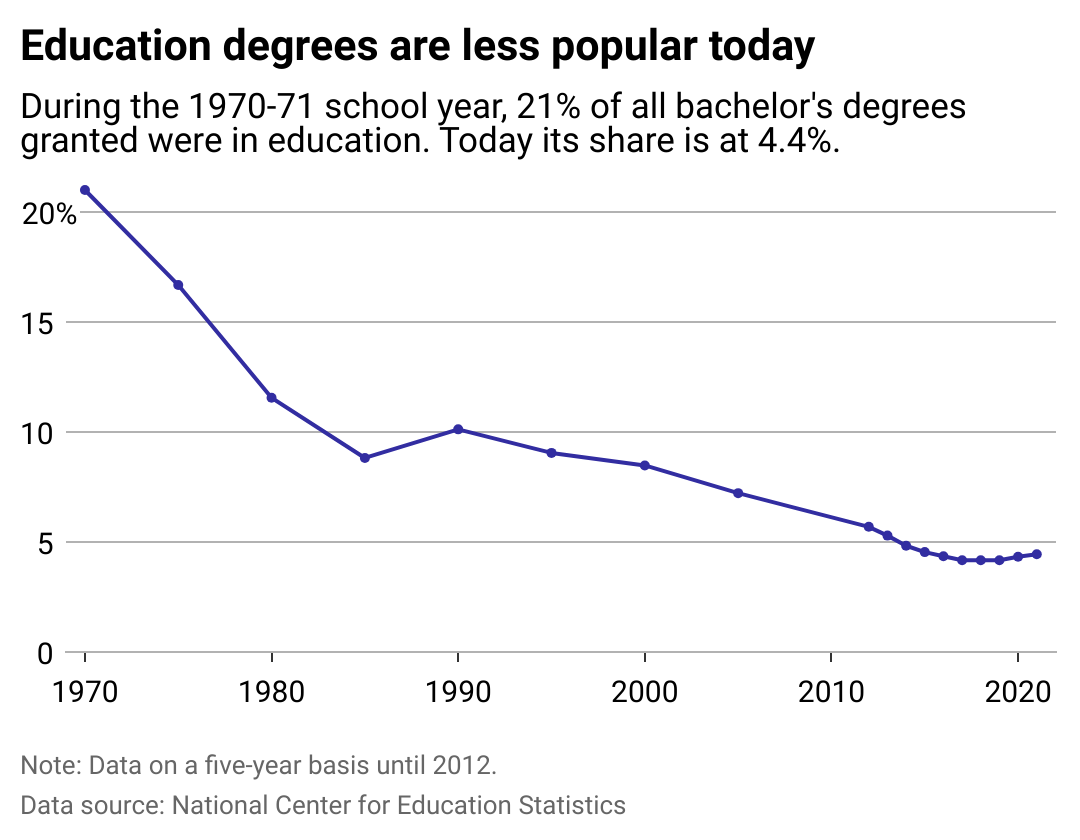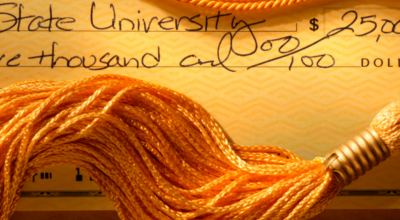As fewer students seek teaching degrees, universities close undergraduate programs
Published 3:00 pm Tuesday, March 19, 2024
As fewer students seek teaching degrees, universities close undergraduate programs
Education programs at colleges across the country are in trouble.
Oklahoma City University, a liberal arts college with more than 1,300 undergraduate students, has no early childhood and elementary teacher prep programs at the undergrad level. The university determined the programs to be no longer sustainable due to declining enrollment and suspended them for new students in 2020. By early 2022, only three students remained in the combined teaching programs.
News about OCU’s decision to suspend these programs came alongside a slate of headlines about colleges suspending or canceling education majors. Other schools such as Harvard and New Jersey City University have closed undergraduate teaching programs over the past two years. In late 2020, the University of South Florida planned to close its College of Education due to budget cuts but decided to reverse its decision in early 2021 after receiving pushback.
Some universities are promoting graduate programs for those who would have been interested in an undergrad teaching program. Oklahoma City University launched a master’s in education in February 2024, while Harvard encouraged undergrads leaning toward that field to pursue the school’s master’s program in teaching and teacher leadership.
To explore the decline over decades in the popularity of undergraduate education degrees, TeacherCertification.com looked at data from the National Center for Education Statistics.
When colleges phase out primary education degrees, those watching the field worry that the natural pipeline into the teaching profession is being disrupted. In the fall of 2023, more than 20% of public schools reported having several teaching vacancies, according to the National Center for Education Statistics.
Nuance in the Noise: The Complex Reality of Teacher Shortages, a report from consulting firm Bellwether Education Partners, claims there is no across-the-board national teacher shortage but that certain teaching specialties are in particular demand. “States consistently report trouble staffing special education, mathematics, science, foreign language, and English as a second language classrooms,” the report says.
![]()

TeacherCertification.com
Education degrees make up a small share of all bachelor’s degrees
The education major used to be the “it girl” of college degrees, but it has lost its luster among college students.
In 2020-21, only 591,000 students were enrolled in teacher prep programs in the U.S., down by nearly 33% from the 2010-11 school year, according to federal data. Some of this is attributable to the fact that overall undergraduate enrollment was down 15% between fall 2010 and fall 2021.
In some cases, the decline is due to potential future teachers pursuing other degrees. Nowadays, business is the most popular major for America’s students, with nearly 19% of students earning a bachelor’s degree in the field in 2022, according to NCES data. Fifty-eight percent of bachelor’s degrees are concentrated in business, health professions, social sciences and history, biomedical sciences, psychology, and engineering, according to the NCES.
Meanwhile, STEM degrees—with their six-figure earning potential—remain the most financially valuable in the world, increasing their popularity as many students leave school strapped with five figures worth of student loan debt.
Experts blame the COVID-19 pandemic for further exacerbating a decline in college enrollment, regardless of major, making declining programs like education majors easy prey for closing. In addition, some experts blame uncompetitive wages—even as teachers become more educated, their salaries remain stagnant—for disinterest in education as a major.
In an effort to strengthen the pipeline, the Department of Education launched “Teachers: Leaders Shaping Lives,” a marketing campaign to encourage people, especially those from underrepresented backgrounds, to join the teaching profession.
States are making efforts as well. Washington state, for example, aims to boost enrollment in teacher prep programs through scholarships, teacher recruitment and retention programs, and teacher academies to expose high school students to the profession. In Oklahoma, the University of Oklahoma and Oklahoma City Community College announced a partnership to increase teachers in the state.
Story editing by Mary Reardon. Copy editing by Tim Bruns.
This story originally appeared on TeacherCertification.com and was produced and
distributed in partnership with Stacker Studio.
More Stacker National






